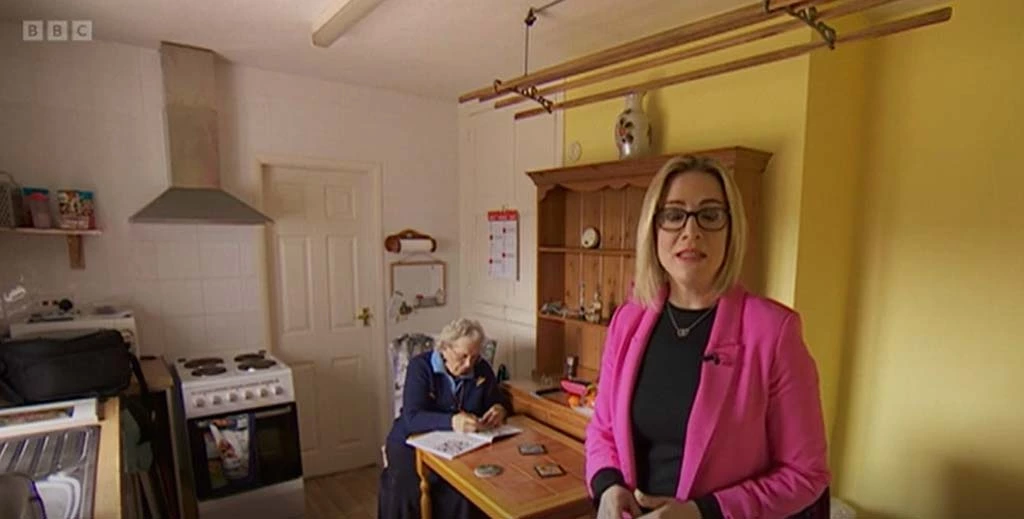
Housing secretary’s plans aim to address the housing crisis as he says country must make ‘better use’ of buildings
Michael Gove is planning to change planning laws to pave the way for more home extensions and conversions of shops into houses in England in efforts to address the housing crisis.
As part of plans due to be announced on Monday, the housing secretary said new rules will be drawn up to give greater freedoms to carry out property extensions and to open up lofts.
Officials said the proposals will allow families to expand their home as their family grows while still ensuring neighbours’ interests are protected.
New flexibilities will be introduced to allow shops, takeaways and betting shops to be turned into living spaces, with Gove arguing that Britain must “make better use of the buildings we already have”.
The Department for Levelling Up, Housing and Communities said the proposals to relax rules around the use of retail space is designed to help rejuvenate high streets and provide greater density of housing in inner cities, rather than encouraging urban sprawl.
Lisa Nandy, Labour’s shadow housing secretary, said the announcement was a “drop in the ocean” that failed to address the scale of the housing shortage.
Gove, in a speech in London on reforming national permitted development rights, is also expected to announce that the Conservative government will cut rules limiting barn conversions and the repurposing of agricultural buildings.
Before his speech, Gove said: “Britain needs more homes to fulfil more dreams of home ownership and increase choice for renters.
“But they must be of the right type and targeted in the right places.
“So we must build more in the places that make sense – in our inner cities so that we protect our countryside.
“And we must make better use of the buildings we already have – empty shops or offices cannot be gathering dust while we have an urgent need for more homes.
“That is why we are reviewing the rules around permitted development rights to make sure we can regenerate, build and grow.”
The announcement comes only two weeks after a cross-party panel of MPs warned that Tory ministers are unlikely to deliver 300,000 new homes each year after making the target advisory rather than mandatory.
The prime minister, Rishi Sunak, decided in December to downgrade the target’s status to see off a brewing Conservative backbench rebellion.
The Levelling Up, Housing and Communities committee, in a report published earlier this month, said its inquiry into the policy change had seen it told that the six-figure target would be “impossible to achieve” by the mid-2020s.
Clive Betts, the Labour committee chair, said Sunak’s decision was “already having a damaging impact on efforts to increase the building of new homes”.
Labour’s Nandy has already announced plans to make it easier to build on unsightly parts of the greenbelt if Keir Starmer is elected prime minister at the next election, expected to be held in 2024.
Responding to Gove’s announcement, Nandy said: “Britain desperately needs more homes, but another review is a drop in the ocean compared [with] what is needed to fix the housing crisis.
“We don’t need more reviews or press releases, we need bold action to get Britain building.
“That’s why Labour has set out plans to reform the planning system to build the homes we need.
“We will restore housing targets, reform compulsory purchase rules and take the tough choices to back the builders, not the blockers.”
Original post from www.theguardian.com






 Rik Smith (pictured), Head of Tenancy services at rent guarantee platform Goodlord, says: “I’m sure the sector will welcome the proposed extended deadline to get properties up to standard, but there’s an enormous amount to do before then.”
Rik Smith (pictured), Head of Tenancy services at rent guarantee platform Goodlord, says: “I’m sure the sector will welcome the proposed extended deadline to get properties up to standard, but there’s an enormous amount to do before then.”
 Nottingham landlord Mick Roberts (pictured) believes this eviction is only just the start. “The government needs to sort this out,” he tells LandlordZONE.
Nottingham landlord Mick Roberts (pictured) believes this eviction is only just the start. “The government needs to sort this out,” he tells LandlordZONE.



